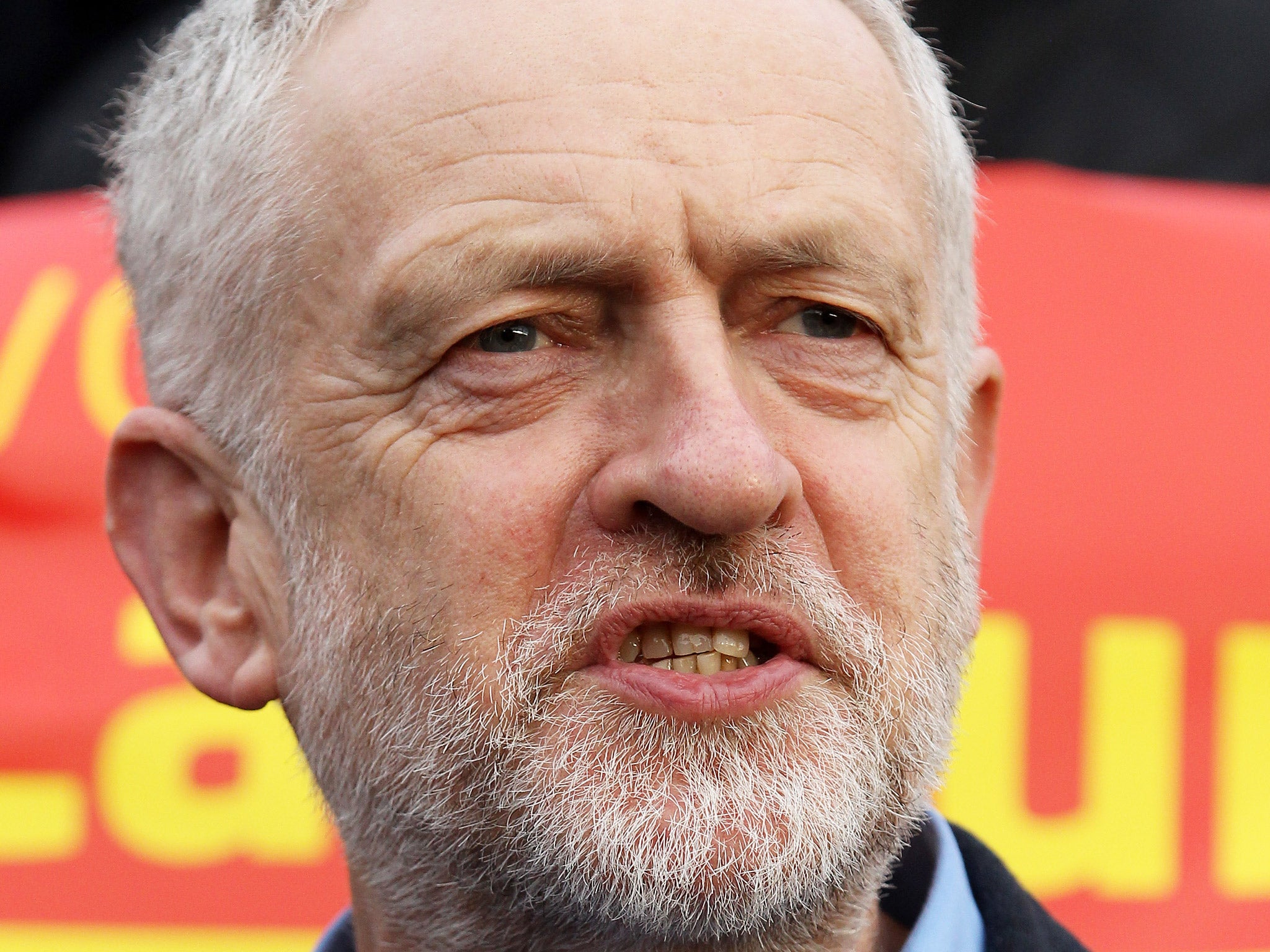Jeremy Corbyn pledges to put state investment 'centre stage' if he becomes Prime Minister
He will call for a new 'national investment bank' to target funding for enterprises that are in the wider public and economic interest 'not just in the interests of quick returns'

Your support helps us to tell the story
From reproductive rights to climate change to Big Tech, The Independent is on the ground when the story is developing. Whether it's investigating the financials of Elon Musk's pro-Trump PAC or producing our latest documentary, 'The A Word', which shines a light on the American women fighting for reproductive rights, we know how important it is to parse out the facts from the messaging.
At such a critical moment in US history, we need reporters on the ground. Your donation allows us to keep sending journalists to speak to both sides of the story.
The Independent is trusted by Americans across the entire political spectrum. And unlike many other quality news outlets, we choose not to lock Americans out of our reporting and analysis with paywalls. We believe quality journalism should be available to everyone, paid for by those who can afford it.
Your support makes all the difference.Jeremy Corbyn will pledge to put state investment “centre stage” if he becomes Prime Minister, committing the Labour party to a break from what he called “the failed economic orthodoxy” of “the establishment”.
In a speech to the British Chambers of Commerce, the Labour leader said that only through cooperation between the state and markets, and an increase in public investment in science, technology and the green industries could government achieve “rising living standards for all”.
And in one of his most direct attacks yet on the record of Gordon Brown and Tony Blair, he will say that the “New Labour approach” of “light-touch” regulation of the banks before the financial crisis amounted to an attempt to “outsource economic policy to the City of London”.
“Osborne’s recovery is a house built on sand. But what Labour now stands for is far more than stopping the damage being done by this government... and its threat to our long-term economic future,” he is expected to say, criticising the Chancellor for seeking to “cut back government” in response to the financial crisis.
“But it wasn’t government that was the problem in 2007 and 2008 when the banking sector nearly drove the entire economy to the point of collapse,” he will say.
“The New Labour approach was to opt for ‘light touch regulation’ of finance – and then sit back and collect the tax revenues. But you cannot base a decent social policy on an unsustainable economic policy. And we cannot outsource economic policy to the City of London. That has not served our economy well, and it has not served business well.”
He will call for a new “national investment bank” to target funding for enterprises that are in the wider public and economic interest “not just in the interests of quick returns”.
However, his attack on the economic record of previous Labour governments is likely to lead to a fresh clash with opponents in his own party.
Join our commenting forum
Join thought-provoking conversations, follow other Independent readers and see their replies
Comments